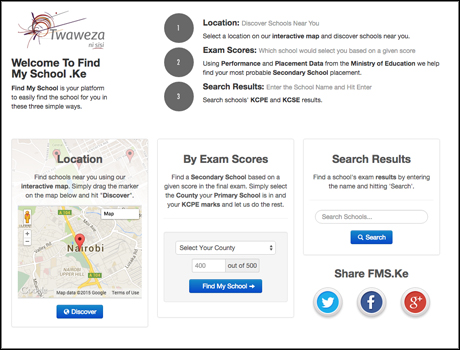
Code for Africa has received a $4.7 million grant to fund projects using data, drones and sensors to promote health and development journalism across the continent.
In announcing the funding, founder Justin Arenstein said Code for Africa will use the money from the Bill & Melinda Gates Foundation to support newsrooms in Kenya, Nigeria and South Africa, before expanding into Tanzania next year.
"Once you liberate data, you can tell some fantastic stories about what's really going on in the country, which are a lot more up to date than some of the other sources people can get hold of," said Stephen Abbott-Pugh, who led digital projects at the Guardian and UK Parliament before joining Code for Africa as a Knight International journalism Fellow in June.
The ability to quickly and cheaply build open data projects which can be replicated is central to the Code for Africa projects, said Abbott-Pugh, and the existing Code for Kenya and Code for South Africa initiatives will be expanded to other countries.We're thinking a lot of how to reach people via SMSStephen Abbott-Pugh, Code for Africa
Success stories in Kenya have included a 'Dodgy Doctors' database to help readers check their doctors' credentials. Others include Gottovote, an app providing key registration information for elections that has already been reproduced in Ghana and Malawi, and Find My School, which helps parents choose the best school for their children.
Projects in South Africa have often focused on tools for journalists, such as detailed maps of election results, an open data portal, and a Parliamentary Monitoring Group.

Screenshot from the Find My School project
"All of those are built with reusability in mind," Abbott-Pugh told Journalism.co.uk. "In the next six months or so, we're looking to take some of the work we're already done around health and reuse that technology in different places."
The lack of support for open data will prove more challenging in Nigeria and Tanzania, he said. But as the number of mobile users grow, so will the potential to reach a larger percentage of the population with valuable information.
"We're thinking a lot of how to reach people via SMS," Abott-Pugh said. "We did that for voting, we did that for health data, but there's a lot of activity in the countries we're talking about around maternal health or particular diseases... where NGOs may pay for the SMS.
"So we're trying to find some other solutions where we can involve the media and have data that is of value to people, especially if it's concerning health, education or children."
Code for Africa will also set up its first data journalism school in Cape Town, as an extension of its d|Bootcamp projects, to train journalists to use and understand data before taking those lessons back to their newsrooms.We want to lower the barrier to entry, by taking some of the risk out of digital experimentationJustin Arenstein, Code for Africa
Rather than the one- or two-day bootcamps, the school will span several weeks and focus on young journalists getting proper training and building up a support community in the process.
"They'll be writing about their progress and keeping in touch and their work will be republished by the school," said Abbott-Pugh. "The plan is for them to do training and go back to their newsrooms while maintaining that community."
South African editor Raymond Joseph will lead the data school as one of the new Knight Fellows. Award-winning journalist Catherine Gicheru will lead the project in Kenya and Babatunde Akpeji, a Nigerian multimedia journalist, will lead efforts in Nigeria.
Chris Roper, former editor-in-chief of South Africa's Mail & Guardian, completes the team of new Knight Fellows, as data editor and audience engagement lead respectively.
"We want to lower the barrier to entry, by taking some of the risk out of digital experimentation. One way to lower costs is to make re-usable technology or data available. Another way is to help media partners build new business models on top of their new digital services. We’re aiming to do both these things," Arenstein said in a blog post accompanying the announcement.
Free daily newsletter
If you like our news and feature articles, you can sign up to receive our free daily (Mon-Fri) email newsletter (mobile friendly).









